Just like physicians and other medical providers, nurses can be held responsible for negligent conduct.
When a nurse makes a medication error, the legal consequences can be significant and multifaceted.
These may include disciplinary action by the state board of nursing, potential job dismissal, and the experience of mental anguish.
Additionally, nurses may face civil lawsuits or even criminal charges depending on the severity and impact of the error.
A quick internet search will reveal a plethora of nursing error stories, but you may be wondering what qualifies as a nursing error and whether you have any legal recourse if you’ve been injured.
You may be wondering what would happen if a nursing error contributes to the death or serious harm of a patient.
You may be asking, “Can you sue a nurse for malpractice?” Below, we discuss the specifics of nursing negligence and what you need to know about nursing malpraactice.
If you have questions, please contact the nursing malpractice lawyers at Brockstedt Mandalas Federico today.
Who Qualifies as a Nurse?
Nursing malpractice can occur in various settings, including hospitals, surgical centers, physician offices, nursing homes, rehabilitation facilities, and patient homes.
A critical nursing error that can contribute to the death or serious harm of a patient includes giving the wrong medication, administering it in the wrong amount, or giving it in the wrong manner.
These errors can have severe consequences and should always be addressed immediately.
Negligence in nursing can happen in all nursing fields and occupations, including:
- Surgical nurse,
- Critical care nurse,
- Emergency room nurse,
- Floor nurse,
- Home health nurse,
- Hospice nurse,
- Labor and delivery nurse,
- Pediatric nurse,
- Oncology nurse, and
- Psychiatric nursing.
Additionally, negligence in nursing can extend beyond the hands-on nurse and go up to the director of nursing, chair, and more heads of positions.
Negligence in medication administration by nurses can occur when they fail to adhere to specific protocols.
These may include administering medication without a doctor’s order or failing to document it properly.
This negligence may lead to serious consequences, highlighting the importance of timely communication with physicians and accurate chart documentation.
Who Are Considered Nurses?
There are many types of nursing with varying education, skill, and experience levels. Nursing mistakes may be committed by nursing staff, including the following:
- Registered nurses,
- Nurse practitioner,
- Certified nursing assistants,
- Licensed practical nurses,
- Advanced practice registered nurses,
- Clinical nurse specialist, and
- Certified nurse midwife.
Types of Nursing Error Malpractice
Nursing malpractice extends to all patient care areas, including routine patient exams, pre- and post-operative care, rehabilitation services, and more.
1. Diagnostic Errors
Diagnostic errors can be some of the most significant, with severe consequences. Many times diagnostic errors occur by nurses with more advanced degrees and responsibilities.
They must have the ability and capability to make diagnostic decisions. Nurse practitioners, for instance, can face malpractice complaints for failing to diagnose a condition, misdiagnosing an illness, or delaying a diagnosis.
Diagnostic errors can have a domino effect and can lead to the following:
- Worsening of the condition or illness,
- Untreated pain,
- Curable diseases becoming incurable,
- Unnecessary medication,
- Prolonged suffering, and
- Unexpected death.
Diagnosis errors are not limited to advanced nursing staff but can fall on any staff contributing to diagnostic errors.
For instance, if an RN fails to notice changes in the severity of a patient’s condition, it can prevent a proper and timely diagnosis.
2. Medication Errors in Nursing Malpractice
Healthcare professionals who commit medication errors risk losing patient trust, facing civil legal actions, criminal charges, and disciplinary actions by medical boards.
The U.S. Food and Drug Administration (FDA) receives more than 100,000 reports of suspected nurse medication errors each year.
While a majority of medication errors occur during the administration of medication, there are other common medication errors by nurses, including:
- Incorrect dosage,
- Wrong medication,
- Administration at the wrong time,
- Failure to document the dispensing of drugs,
- Medication is given to the wrong patient, and
- Incorrect route of administration (e.g., oral, intravenous, etc.).
If you have ever spent time in a hospital setting or under extended medical care, you know nurses are generally responsible for administering medications. You must know your rights if a medication nursing error harms you or someone you love.
Legal actions, including lawsuits or prosecutions, often follow harm. Responses typically reflect actual consequences, not potential outcomes or moral fault.
3. Negligent Infection Control
Infection is a serious concern for any patients or residents of nursing and medical facilities.
Nurses are crucial in effective infection control and preventing infections from spreading. Infection control procedures include:
- Properly wash hands,
- Wear personal protective equipment,
- Replace or sterilize equipment and the environment, and
- Isolate contagious patients.
If nurses are negligent with infection control procedures and disregard safety protocols, it can lead to significant consequences and a malpractice lawsuit.
4. Failure to Mitigate Fall Risk
Nurses play a crucial role in fall prevention. Specific injuries and medications will likely affect a patient’s balance, strength, mobility, and orientation.
Elderly patients are especially at risk of falling due to underlying health issues and disabilities.
Nurses are responsible for supervising patients, assisting with ambulation, and taking steps to mitigate fall risks. These include:
- Assisting patients with personal hygiene and other daily activities,
- Adjusting bed rails to prevent falls,
- Supervising at-risk patients anytime they are moving, and
- Documenting and reporting any patient symptoms that would increase their fall risk (e.g., dizziness).
It is no secret that a fall can lead to new injuries, worsening current injuries, and further complications necessitating more medical intervention.
5. Negligent Communication
Communication among nurses, doctors, patients, and other care providers is crucial and of the utmost importance during medical care.
Patients often directly communicate with nurses responsible for documenting and relaying those concerns to the treating physician.
A breakdown in the communication between any of these parties can have devastating consequences.
For example, if a patient complains of a new symptom that might require emergency medical intervention (e.g., severe chest pain), nurses should notify the doctor immediately. Failure to do so can result in cardiac arrest or other complications.
6. Equipment Injuries
Now more than ever, nursing involves using new advanced medical equipment.
Nurses must be familiar and knowledgeable with all medical equipment they may be expected to utilize, including monitors, diagnostic equipment, therapeutic machines, computers, and other high-tech equipment.
Nurses often handle equipment such as the following:
- Digital patient monitors,
- IV pumps,
- Catheters and feeding tubes,
- Wearable monitoring devices,
- Oxygen delivery equipment,
- Smart beds, and
- Electronic charting and record keeping.
Failing to adequately or appropriately operate this equipment can result in catastrophic consequences to the patient. Nurses have a responsibility to be up-to-date on current equipment.
7. Failure to Prevent Bedsores
Bed sores occur when a patient is bedridden for prolonged periods. These patients require necessary and frequent position changes to prevent bedsores. Their skin must also be kept clean and dry to prevent these pressure ulcers.
Not only are they painful, but they can become life-threatening if an infection occurs. Nurses are responsible for adequately caring for their patients to prevent bedsores.
Classify this error as reckless or negligent behavior, warranting disciplinary action. Serious progressive discipline should include suspension, retraining, and a mentoring program.
The 6 Rights of Medication Administration for Nurses
Nurses minimize the risk of nurse medication errors by following the six rights of medication administration.
- Right Patient: Nurses must identify, verify and ensure they have the correct patient.
- Right Drug: Nurses must verify the correct medication is being administered as prescribed.
- Right Dosage: The nurse is responsible for calculating or ensuring the patient receives the correct dose as prescribed.
- Right Route: A nurse must ensure the medication is administered by the correct route, whether oral, intravenous, intramuscular, or subcutaneous.
- Right Time: Medication must be administered at the correct times. Nurses must verify the timing and frequency of patient medication.
- Right Documentation: Medication administration must be correctly and accurately documented in the patient’s chart, including recording the medication name, dose, time of administration, route, and whether the patient had any side effects.
Skipping one or more of these steps can lead to irreversible harm to the patient.
Nurses can become negligent with medication administration through various common errors, as identified by a study published in BMC Nursing:
- Administering medications at incorrect times.
- Failing to document medication dispensing.
- Providing incorrect doses.
- Administering medications through the wrong route.
- Dispensing the wrong medication.
- Providing medications to the wrong patient.
Do You Have a Nursing Malpractice Case? Contact Brockstedt Mandalas Federico Today!
At Brockstedt Mandalas Federico, we understand how difficult the days, weeks, and months following a nursing malpractice error can be. You do not have to live with the ramifications of this negligence; you have rights.
We were recently named to the Lawdragon 500 Leading Plaintiff Consumer Lawyers for our industry-leading work and the impactful results our team has obtained for our clients. Let our seasoned nursing error lawyers help you.
Contact us to schedule your initial consultation. You can also call us at (410) 970-3279.
Related Posts:
- Negligence in Nursing Examples | Malpractice in Nursing
- Can You Sue A Doctor If Surgery Fails?
- What Is “Pain And Suffering” In A Medical Malpractice Case In Maryland?
- Suing for Inadequate Pain Management: Your Legal Options


